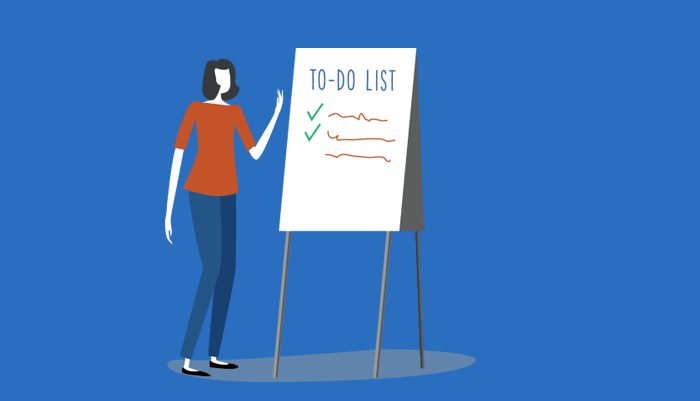
In our rapidly moving world, time is a valuable commodity many of us try to catch up with. The pressures from work, family, and personal commitments often leave us with minimal opportunities for rest and self-care. By recognizing the root causes of time poverty and adopting practical strategies, we can take back control of our time and enjoy more meaningful lives. This article explores how time scarcity affects us and offers useful tips to help you escape time limitations so you can focus on what matters and take charge of your life. (Estimated reading time: 11 minutes)
“Lost time is never found again.”
– Benjamin Franklin
Time is a limited resource. In the time we’re alive, we all have the same 24 hours a day and 365 days a year. It doesn’t matter if you’re the CEO of a multinational company or a street vendor in the bazaars of Egypt – when it comes to managing time, we’re all working on a level playing field.
Despite this reality, it’s a universal truth that we all wish we had more time. The feeling of lacking enough time to accomplish everything is a common struggle, intensified by the pressures of work, family, and personal responsibilities. These demands often leave little room for relaxation and self-care, resulting in a sense of overwhelm.
In a society that prioritizes success, achievement, and perfection, many people wrongly believe that relentless effort and constant activity are the sole paths to greater accomplishments. A quick glance at any bustling street, train station, or airport reveals the frenetic pace of city life.
Society has ingrained a ‘worker bee’ mindset, pushing us into the rat race and glorifying the ‘hustler’ lifestyle. The message is clear: to achieve great success, we must outwork everyone else. This pressure is a reality many of us face.
Hustling has become a badge of honor for those chasing power in our capitalist world. With the belief that time equals money, many feel they can’t afford to take breaks or, heaven forbid, go on vacation.
The hustler’s mantra often involves long hours and sacrificing time with friends and personal interests. The idea is that if we persevere, rewards will come. This mindset is celebrated, and those who succeed are praised for their unwavering dedication to hard work.
In his book, “The Calm Company,” author Jason Fried writes:
“Long hours, excessive busyness, and lack of sleep have become a badge of honor for many people these days. Sustained exhaustion is not a badge of honor, it’s a mark of stupidity. Companies that force their crew into this bargain are cooking up dumb at their employee’s expense.”
It’s important to remember that a jam-packed schedule filled with side projects and adventures can actually do more harm than good. When you find yourself saying, ‘I’m too busy right now,’ or ‘I don’t have time for anything,’ it’s crucial to realize that there’s nothing admirable about that. It’s a sign of the negative impact of constant busyness.
Escaping the limitations of time poverty involves making conscious choices about how you spend your time. It means saying no to things that don’t align with your values and priorities and yes to things that do. It means setting boundaries and making time for self-care. It means finding ways to be more efficient and productive to free up time for the things that matter most to you.
By focusing on your well-being, nurturing relationships, and following your passions, you can navigate the complexities of modern life with grace and purpose.
What is time poverty?

Time poverty is feeling like you lack the time to complete everyday tasks and obligations, resulting in a constant sense of being hurried or stressed. This issue is becoming more prevalent in today’s world, where the pressures of work, family, and social commitments contribute to an ongoing state of busyness.
Unlike financial poverty, which can be quantified by income, time poverty is more complex and subjective. It varies from one individual to another, influenced by personal situations, lifestyle decisions, and societal norms. This complexity underscores the validity of our struggles with time, making it a concern that deserves our attention.
Time poverty isn’t just about feeling rushed or stressed. It’s about how these feelings can affect overall quality of life. Many of us find ourselves grappling with stress, anxiety, and dissatisfaction as we struggle to effectively manage our time.
This constant pressure can create a never-ending cycle of overcommitment, causing us to take on more tasks than we can realistically manage, which only worsens our time deficit. Consequently, the pleasure derived from simple joys, like enjoying moments with family or engaging in hobbies, fades away, resulting in a disconnect from what truly matters in life.
The advancement of technology has a significant impact on time poverty. While tools like smartphones and productivity applications are designed to make our lives easier and boost our efficiency, they can also contribute to a need to be constantly available and quick to respond.
How prevalent is time poverty in the modern world?
To understand the impact of time poverty, let’s look at different studies and statistics that underscore its importance today. Research reveals that a significant segment of the workforce feels pressed for time.
Surveys indicate that around 60% of participants believe they lack sufficient time to finish all their responsibilities, which often results in feelings of frustration and inadequacy. Moreover, studies show that working parents are especially vulnerable to time poverty as they frequently find it challenging to juggle work obligations and family duties.
It’s important to acknowledge that time poverty affects different demographics differently. For instance, single parents and those from low-income households often face more significant time constraints as they balance financial difficulties with caregiving duties. Additionally, the rise of the gig economy has brought its own time management challenges, particularly for those in flexible or freelance roles.
With the rise of remote work, particularly after the COVID-19 pandemic, the issue of time poverty has taken on new dimensions. While many appreciate the flexibility of working from home, the ‘always-on’ mindset can blur the lines between work and personal life, leading to increased time pressure.
However, recognizing these trends is the first step towards creating targeted interventions and support systems to help individuals manage time poverty more effectively, offering hope for a better future.
How does time poverty impact us?
The effects of time poverty are far-reaching, impacting both individuals and society as a whole.
Individuals
For individuals, one of the primary outcomes is heightened stress and anxiety levels. The relentless demands of deadlines, social events, and managing family responsibilities can result in mental exhaustion.
This emotional burden can also lead to physical health problems, including headaches, sleep disturbances, and a compromised immune system. Furthermore, the absence of leisure time adds to the risk of burnout, a growing issue in many workplaces today.
Those who prioritize work and obligations over their health may neglect regular exercise, make poor dietary choices, and get inadequate sleep. Over time, these unhealthy habits can lead to chronic conditions such as obesity, heart disease, and diabetes, creating a cycle where health issues further contribute to feelings of time scarcity.
Time poverty can also affect interpersonal relationships. People may find themselves too busy to connect meaningfully with friends or family, leading to isolation and loneliness. This disconnect can erode support networks, which are crucial for maintaining mental health.
Society
On a societal level, time poverty can detrimentally affect community cohesion and engagement. When people are overwhelmed by their busy lives, they often miss out on community events and social interactions. This withdrawal can weaken social bonds and diminish the sense of belonging vital for a supportive and thriving community.
Additionally, time poverty can exacerbate socioeconomic inequalities, as those with fewer resources may find it harder to manage their time, leading to ongoing stress and fatigue.
Time poverty can also significantly hinder personal and professional growth. When individuals are overwhelmed with responsibilities, they often miss opportunities to improve their skills, form connections, or take care of themselves. This lack of personal development can stifle creativity and innovation vital for success. As a result, individuals may find themselves stuck in a repetitive cycle, unable to pursue their passions or advance in their careers.
It’s crucial to recognize and address the effects of time poverty to foster a healthier, more efficient society.
Identifying the causes of time poverty

To tackle time poverty successfully, we must first understand its root causes to develop practical solutions that tackle the unique difficulties people encounter in their pursuit of a more balanced and satisfying life.
These are the three top reasons for time poverty:
1. Overcommitment.
Many people feel the need to accept every invitation, work task, or social duty, resulting in jam-packed schedules that don’t allow for personal downtime. This mindset is often driven by societal expectations to excel, achieve, and appear productive, leading to a relentless cycle of busyness that can be hard to escape.
2. Lack of effective time management skills.
Many people struggle to prioritize their tasks, which results in a less efficient use of their time. Procrastination, distractions, and difficulty delegating tasks can intensify the sense of having too little time. In today’s world, where multitasking is frequently seen as a desirable ability, people may overextend themselves, trying to manage several projects at once without achieving significant progress.
3. External factors.
External influences like financial challenges, family situations, and job demands significantly impact how people experience time poverty. Economic uncertainty might compel people to juggle several jobs, and family obligations can complicate their ability to manage time effectively.
Strategies to overcome time poverty
Overcoming time poverty requires a multifaceted approach that includes practical strategies and mindset shifts. Leverage these techniques to better control your time and experience more flow.
1. Use time management techniques and tools
One of the most effective ways to reclaim time is by implementing time management techniques.
- Establish a well-organized daily routine: This approach allows you to dedicate time to essential activities while also ensuring you include periods for relaxation and self-care. The Pomodoro Technique is effective for time management. It involves working in focused intervals, typically 25 minutes, followed by a short break. After four such intervals, you take a longer break. This technique can boost productivity and make the workday seem more manageable.
- Use a digital planner or calendar: Digital planners and calendar apps are like a breath of fresh air in the chaos of daily life. They help you see your schedule clearly and set reminders for key tasks. Applications like Google Calendar and Trello are excellent for organizing tasks, deadlines, and appointments, which makes it simpler to stay focused and prioritize what needs to be done.
- Use productivity applications: These tools are like a personal assistant, empowering you to simplify workflows and effectively manage tasks. Apps like Todoist and Asana allow you to build to-do lists, establish deadlines, and monitor progress across different projects. Completing tasks can give you a feeling of accomplishment, promoting a more structured way to handle daily commitments.
- Utilize time blocking: This approach allows you to set aside dedicated time slots for various tasks during their day. For instance, you can block out time for work-related tasks in the morning, personal tasks in the afternoon, and relaxation in the evening. Not only does this strategy help maintain concentration, but it also establishes a well-organized routine that can boost productivity. By committing uninterrupted time to particular activities, you can lessen distractions and achieve meaningful advancements toward your objectives, ultimately reducing the overall feeling of time scarcity.
2. Prioritize tasks and set boundaries

To effectively manage your time, you should not only create a structured schedule but also rank your tasks by urgency and importance. The Eisenhower Matrix is a helpful resource that lets you adapt and divide tasks into four categories based on their unique circumstances. This guides you on where to direct your attention first, helping to optimize your time and energy and alleviating the stress that comes from juggling multiple responsibilities.
Another approach to tackling time poverty is to set boundaries. You can reclaim precious time and mental space by learning to say no to unnecessary commitments. This can be a liberating experience, relieving you from the pressure of accepting extra responsibility or social invitations.
Understanding that turning them down is perfectly fine can help you achieve a more balanced routine. Defining specific limits for work hours, family time, and personal activities can foster a healthier work-life balance, which in turn can alleviate the sense of time scarcity.
It’s also important to regularly evaluate and modify your priorities and boundaries for sustained success. Life is constantly evolving, and what was a priority just a month ago might change due to new responsibilities or aspirations. By proactively dedicating time to reassess your commitments and make the needed changes, you can stay aligned with your core values and priorities, paving the way for a more rewarding and balanced life.
3. Delegate and outsource
A great way to tackle time poverty is by delegating tasks and outsourcing them whenever possible. This method helps lighten your workload by allowing you to pass on responsibilities to others at work and in your personal life.
In a professional setting, sharing tasks with team members can boost teamwork and ensure everyone plays a part in achieving common objectives. By understanding the strengths of your colleagues and assigning the right tasks, you can enhance productivity and create a more harmonious work atmosphere.
Outsourcing everyday tasks in our personal lives can free up time for more meaningful activities. This could mean bringing in experts for chores like cleaning, gardening, or grocery shopping. Services like meal delivery or laundry can also help save precious time, allowing us to focus on self-care, family, or hobbies. Recognizing that it’s perfectly fine to ask for assistance can greatly reduce the stress of being short on time, providing a sense of relief and enhancing overall life satisfaction.
Embracing technology also makes it easier to delegate and outsource tasks. Many apps and platforms link people with service providers for a range of activities, like Uber for rides or TaskRabbit for household chores. Utilizing these tools can simplify everyday tasks and allow us to focus on what matters most. By delegating and outsourcing, we can regain our time and cultivate a more balanced and satisfying life.
Finding a balanced and fulfilling life comes down to appreciating the importance of time and making deliberate choices that resonate with your values and priorities. You can escape the limitations of time poverty and build a life that showcases your heart’s desire.
By focusing on your well-being, nurturing relationships, and experiencing the joy of connection, you can gracefully manage the challenges of contemporary life. Now is the moment to prioritize what truly matters and regain control over your life.
All my best on your journey,
Seline

Questions for you: Do you experience time poverty? If so, what strategies do you use to carve out more time in your day?
Did you like this post? Sign up below, and I’ll send you more awesome posts like this every week.

Hey Seline, nice article. I used to think the time crunch would get better once I got out of school, then I had a job, then I added a family, then health issues hit my family, and I have learned that the list is never-ending for things that will steal away our time and energy.
It is something far too many people do not really think about or give serious thought to, so thank you for taking the time to sit and talk to us about the importance of our time!